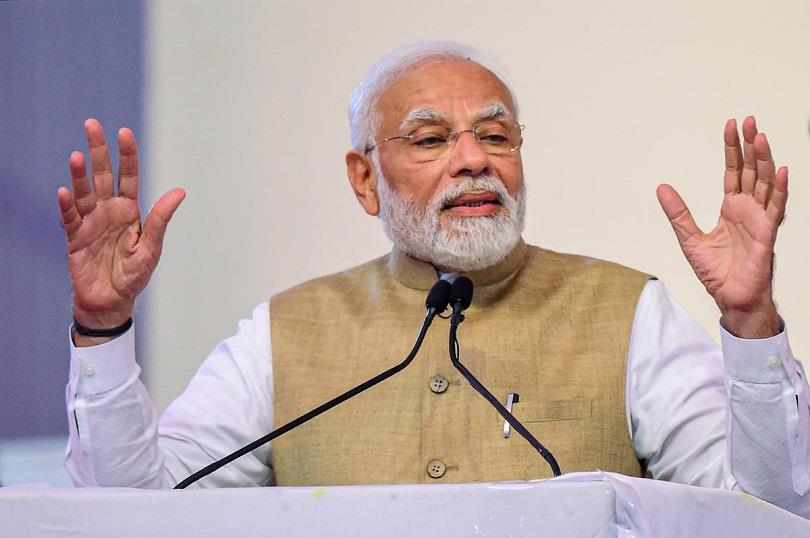
Language Of Law Should Be Local, Simple: PM
Prime Minister Narendra Modi
New Delhi- Prime Minister Narendra Modi on Saturday advocated for simplifying the language of law so that it is easily understood by the local populace and said ease of justice must be ensured for every citizen, irrespective of their social or financial background.
Addressing the inaugural function of a national conference on strengthening legal aid delivery mechanisms at the Supreme Court premises, the prime minister said that ease of justice is a precursor to ensuring social justice.
Modi called for making available the court judgements and legal documents in local languages and lauded the Supreme Court for having taken significant steps in this regard.
ADVERTISEMENTJustice must be made available to everyone, he stressed, adding that the government's legal aid defence system is helping provide ease of justice to the poor and deprived.
At the event attended by Chief Justice of India B R Gavai, his successor Surya Kant, as well as other judges from the Supreme Court and high courts, Modi said social justice can be achieved only if justice reaches every citizen irrespective of his or her social or financial background.
He said the government has taken several steps to improve the ease of justice and it will continue working to accelerate this process.
Justice, PM Modi said, must be delivered in a language that is understood by the recipient. He noted that this principle must be considered at the time of drafting laws. When people comprehend the law in their own language, it leads to better compliance and reduces litigation.
“Language of justice should be the one that is understood by those getting justice,” he said.
He said it is truly commendable that the Supreme Court has taken the initiative to translate more than 80,000 judgments in 18 Indian languages.
“I am fully confident that this effort will continue at the high court and district levels as well,” he said.
“When justice is accessible to everyone, is timely and reaches every individual without regard to social or financial background, only then does it become the foundation of social justice,” he said.
He said legal aid plays a crucial role in ensuring that justice reaches everyone.
Modi also referred to technology becoming a key medium for inclusion and empowerment, and lauded the e-courts project as a brilliant example of this in justice delivery.
“It shows how technology can make the judicial process modern and humane,” he said.
Underlining that over the past 11 years the government has consistently focused on enhancing ease of doing business and ease of living, Modi highlighted that more than 40,000 unnecessary compliances for businesses have been removed.
Through the Jan Vishwas Act, over 3,400 legal provisions have been decriminalised, and more than 1,500 obsolete laws have been repealed. He noted that long-standing laws have now been replaced with the Bharatiya Nyaya Sanhita.
Stressing that mediation has always been a part of Indian civilisation, the prime minister said the new Mediation Act is carrying forward this tradition in a modern form.
At the event organised by NALSA (National Legal Services Authority) to mark its 30 years, Modi also launched a new training module on community mediation and said he is confident it will prepare resources that will help in resolving disputes, maintaining harmony and reducing litigation.
He said lakhs of disputes are being resolved faster and at a much lower cost through Lok Adalats and pre-litigation settlements.

Legal Disclaimer:
MENAFN provides the
information “as is” without warranty of any kind. We do not accept
any responsibility or liability for the accuracy, content, images,
videos, licenses, completeness, legality, or reliability of the information
contained in this article. If you have any complaints or copyright
issues related to this article, kindly contact the provider above.


















Comments
No comment